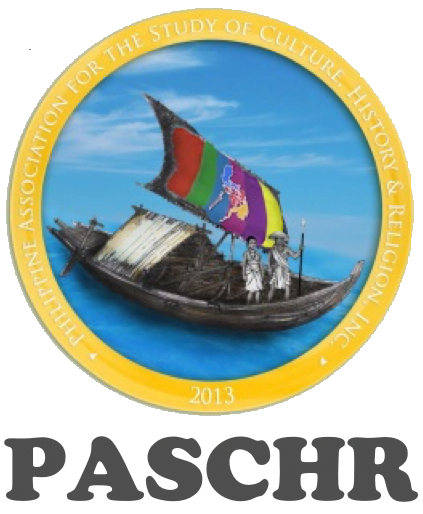



The Philippine Association for the Study of
Culture, History, and Religion (PASCHR), Inc.
SEC REG NO. CN 201317495
In collaboration with the
Catanduanes State University
Invites you to the
9th PASCHR International Conference
on
“Narratives and Practices of meaning-making: histories, cultures and religions in the Philippines in their Indo-Pacific contexts”
May 18-20, 2023
At the Catanduanes State University
(Hybrid modality: onsite and online)
Virac, Catanduanes, Philippines
PASCHR is officially recognized as the Philippines’ national association of the International Association for the History of Religions (IAHR) which has affiliations with UNESCO. As such, it operates under the policies and principles of said parent body, which seeks to promote critical, analytical and cross‐cultural study of religion, past and present. The IAHR is committed to the highest standards of social science scholarship and is not a forum for confessional, apologetical, or other similar orientations.
The PASCHR broadly aims to contribute to the formulation of Filipino national identity through interdisciplinary and transdisciplinary research and scholarship on the Philippines’ indigenous and folk traditions, as well as their colonial, postcolonial, and contemporary developments and links with Asia and beyond, from the perspectives of culture, history, and religion.
The Catanduanes State University (CatSU) is the premiere institution of higher learning in Catanduanes, an island-province in the Bicol region in the Philippines. Integral to its goal of excellence in instruction, research and extension is the aim of significantly contributing to the greater understanding of the human condition through research in the social sciences that highlights the local but in the context of the national and global. Catanduanes is a picturesque island paradise nestled on the eastern flank of the Bicol peninsula and is the official “Abaca Capital of the Philippines.”
CALL FOR PAPERS
In its 9th International Conference of 2023, the Philippine Association of the Study of Culture, History and Religion or PASCHR continues to underscore the points of convergence of scholarships in history, culture and religion, this time in the purview of “meaning-making.” The human enterprise then as now is one of a “making sense” of the lived and created reality, the dynamics of which the disciplines of the Humanities and Social Sciences have taken up as their subject of critical understanding.
In this current pluralist, post-modernist, post-truth world engendered and endangered by unabashed fakery (of news, of narratives, of truth), serious and critical scholarship on meaning-making offers the more plausible and fruitful alternative to the massive manufacture of counterfeit understanding. The meaning-making lens embraces both the big picture and the particularities of accounts up-close, but with more attention to the latter. There is now a moving away from grand narratives and a premium for the “small tradition” so as to take account of the full range of richness, diversity and complexity of the world.
The Philippines has long been characterized as the “marriage of the East and West.” But the Philippine experience is not about the unproblematic East-West mix-up. It is steeped in complexity. For example, its Western influences came in historically from its geographic East (Spain via Mexico, the United States), while it took Eastern cultural inputs in pre-colonial times from its Western side (China, India and indeed from as far as the Arab world). On top of that, it assumes strong cultural and political affinities with the Southeast. In this year’s conference theme, this context is reckoned as “Indo-Pacific” in order to capture such a sprawl and complexity that has so shaped the making sense of Filipino-ness.
The 9th International Conference of the PASCHR will accept paper presentations reflective of the whole gamut of the meaning-making enterprise of Filipino communities, distilled into a variety of narrative and practice strategies, such as but not limited to:
- Historical accounts, ethnographic descriptions, linguistic/literary studies that represent assertions and/or contestations of collective identities
- Accounts of patently or marginally religious narratives and practices (e.g the ritualist and ritual-like) that embody worldviews, ideologies, ontologies
NOTE:
- Papers may cover any of the historical periods namely the pre-colonial, colonial and contemporary, or their dynamic interfaces
- Contextualization within the Indo-Pacific sphere is preferred
- Presentations may be of completed data-based researches, works-in-progress, literature reviews, or of mainly analytical/theoretical expositions.
- Preference however will be for data-based studies, whether completed or a work-in-progress.
- Proposals for panel presentation are welcome
- Papers by graduate and undergraduate college students will be accepted
Submission of Abstracts:
- The abstract is a direct and succinct description of the paper. It must include the broad objective/s addressed, the methodology and the findings and/or basic assertions. Please limit according to the following:
- A title of up to 12 words
- Up to five key words or phrases
- Main body of not more than 200 words
- Use of Arial 11 font
- It must be accompanied by a short bionote of the proponent/s, not beyond 70 words each
- Please send in MS Word as an attachment with the subject “2023PASCHR Conf” to paschr2014@gmail.com.
- Paper presentors must be members of the PASCHR or the PASR (Philippine Association for the Study of Religion). Membership fee must be paid after acceptance note is received.
- Important dates:
- Deadline for submission of abstract: March 31, 2023
- Sending of acceptance note: April 5-10, 2023
- Deadline for submission of full paper: May 10, 2023
Registration and membership fees
- On-site participants:
Registration fee for the conference:
Professionals PhP3,500. (with lunch, snacks, conference kit)
Graduate students
(Filipinos) 2,000. (with lunch, snacks, conference kit)
College students 500. (with snacks)
Foreigners US$80. (with lunch, snacks, conference 2 kit)
Foreign graduate
Students UD$70. (with lunch, snacks, conference kit)
- Online participants:
Professionals PhP2,500.
Graduate students
(Filipinos) 1,000.
College students 500.
Foreigners US$60.
Foreign graduate
Students UD$50.
- Membership fees for PASCHR:
PhP1,000. for one year
PhP2,800. for two years
Payment must be deposited to:
Banco de Oro account name: Philippine Association for the Study of Culture, History & Religion, with account number: 0072-8003-5776
Once payment is made, please send scanned copy of receipt to paschr2014@gmail.com.
